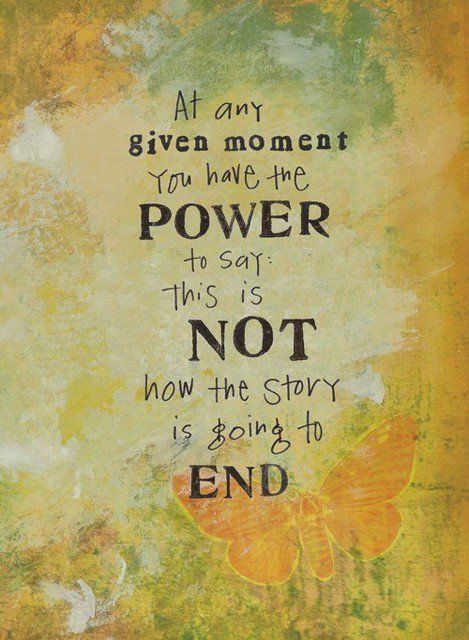If you’re living a “if only” life, you might say things to yourself like:
- [If only] I were well, then I’d (be happy, not be married to him or her, be working at something that I like, etc.)
- [If only] I were well, then I’d never be (this fat, this poor, this overwhelmed, this unhappy, etc.)
- [If only] I didn’t have this disease, I’d be (famous, happy, well-adjusted, living a normal life, happily partnered, etc.)
- [If only] I didn’t have the (fatigue, pain, cognitive problems, depression, anxiety, etc.), then I’d be able to (work, be happy, date, etc.)
- [If only] they (understood, would diagnose me correctly, give me the right medications, etc.), then (I could recover, I’d be happy, I could move on with my life, etc.)
- [If only} (fill in your own blank here), then (fill in your own blank here)
The problem with “if only” kind of thinking is that it can limit your view of what is possible in your individual situation. If you’re thinking this way, you’re not giving yourself the choice to be happy. Although sometimes it can feel that way, being happy doesn’t require health.
Experiencing the inevitable ups and downs of unrelenting chronic illness, we all sometimes feel sad, overwhelmed or just plain angry at our lot in life. There’s no getting around that sometimes, having an illness is not pleasant. I allow myself to feel these feelings occasionally, but strictly reinforce what I call the one-hour rule — if I feel that way for more than that, I decide to change the way I feel. I’m not willing to waste another second feeling bad, and I do whatever is necessary to stop feeling that way.
I do this because I’ve learned that the way I feel is within my control. Sometimes, getting myself to stop feeling bad required help, like visiting a therapist when I first wasn’t able to work because of a newly diagnosed illness. Sometimes I need to take a walk, call a trusted friend or use methods like amygdala retraining. I do whatever I need to do because I don’t want to waste my life feeling sorry for myself or limiting my possibilities for happiness, despite chronic illness. Or anything, really.
But we need to be gentle with ourselves. Sometimes the one-hour rule does not — cannot — hold true. For example, when I was at the stage of illness many years ago where all that was truly possible was to sleep 12-16 hours a day, and I could hardly hold a cohesive thought in my head, I didn’t hold myself to that limitation. But once I was able to get out of bed and sit on a chaise lounge in the living room and watch cartoons or listen to kids’ books on tape, I did.
Others with illness have figured out this way of opening up to the possibilities, too. I particularly enjoyed the Elisabeth Tova Bailey’s “The Sound of a Wild Snail Eating,” and Toni Bernhard’s “How to Be Sick: A Buddhist-Inspired Guide for the Chronically Ill and Their Caregivers.” All offer guidance, validation, encouragement and inspiration for those who struggle with chronic illness.
If you’re interested in learning more about how to think about your illness so you’re more likely to be happy, here’s a list of books I often recommend.
Getty Image by dmbaker


